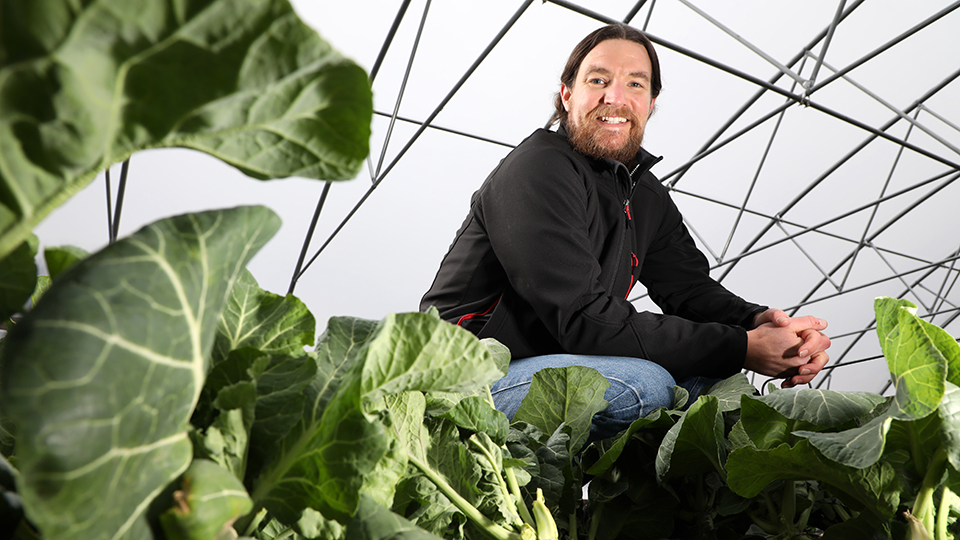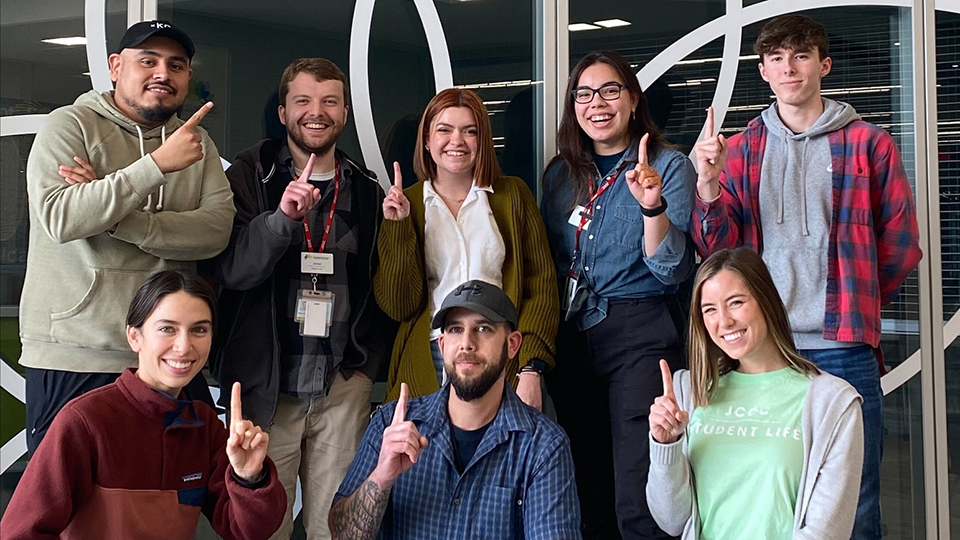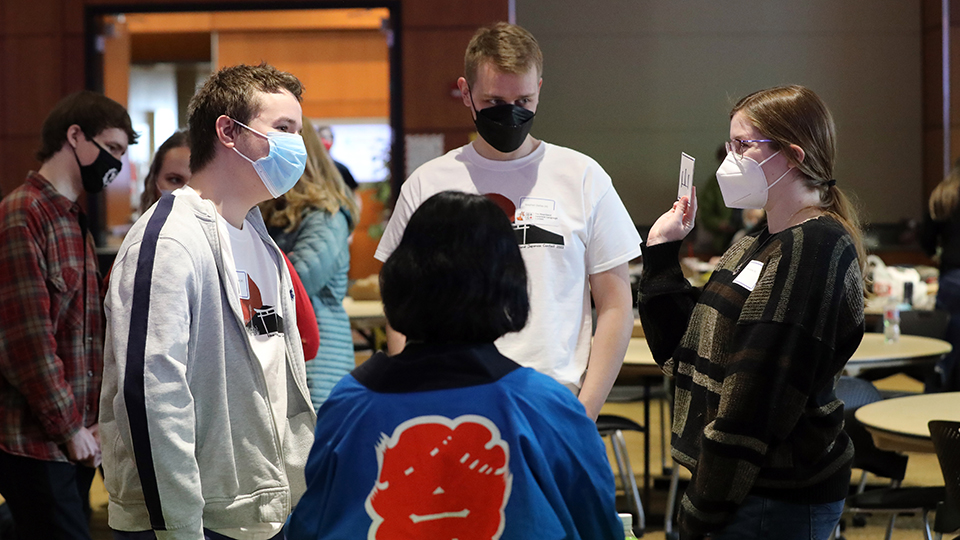May 28, 2019
JCCC Sustainable Agriculture grad creates a successful urban microfarm
From community gardens in neighborhood parks to rooftop vegetable and herb patches, microfarming and urban agriculture are more than fleeting trends.
Neil Rudisill is among the nation’s growing collective of urban farmers. He and his wife, Lisa, run Woodland City KC. Their half-acre microfarm in Kansas City’s revitalized Ivanhoe district produces crops year-round.
You can find their kale, Swiss chard, mustard greens, arugula, radishes and beets at local farmers markets—and on the menus of some of Kansas City’s favorite restaurants.
And it all sprouted at JCCC.
Grab a hoe, yo
So how exactly did this former nursing student wind up tilling the land?
In 2006, Rudisill was checking out class offerings during JCCC’s fall enrollment when a sign about a new Sustainable Agriculture program caught his eye. He was the second student to enroll.
From the start, the Sustainable Agriculture program was redefining the possibilities. Instead of focusing on backyard gardens, instructors instilled the professional-minded focus of agriculture as a business.
Students were given autonomy. They chose the crops to plant and ordered seed. They studied pollination and composting techniques. They learned how to sell at farmers markets and to food services.
All the while, they were changing the way they viewed modern agriculture as an industry.
“The ag industry is looking for new ways to grow everyday foods,” Rudisill says. “Small-scale agriculture has a place. The micro ag techniques you learn at JCCC is the take-home. You are learning the right techniques and skills to use microfarming in innovative ways.
“And at the end of the day, you have the best food around on your table.”
Reap what you sow
Rudisill is passionate about the possibilities that small-scale agriculture can offer beyond the backyard garden.
“Think, ‘How can we make better use of the space we have with vacant land in communities?’” he says. “For example, go to Sprint or Cerner or places with large campuses and offer to be their designated on-site farmer. Farm the acreage and supply the cafeteria with food just like Open Petal Farm at JCCC.”
If your goal is to earn fast money, you’re in the wrong business. Small-scale agriculture and microfarms in particular don’t generate revenue right off the bat.
“It takes years to profit,” Rudisill says. “You need time to nourish the soil, especially in an urban setting, and build up the tools and processes to extend your growing season. You need to establish relationships with wholesalers and restaurateurs. That doesn’t happen overnight.”
Still, Rudisill envisions a future of small-scale farming that does more than put healthy veggies on the family table.
For example, investing in community kitchens would mean farmers could prepare and package their harvest—think jams, canned goods or individually packaged meal ingredients—in kitchens that meet government food packaging standards. They then could sell packaged foods at area stores or farmers markets.
It’s an additional revenue stream that reduces food waste and promotes healthier buying choices for area residents. Win-win.
“The agriculture industry is redefining itself,” Rudisill notes. “We see it in language used by the USDA for grants and loans and with the Urban Agriculture Act of 2018. There’s opportunity for students interested in small-scale farming to have influence early on and be an agent of positive change.”
Learn about JCCC’s other sustainability initiatives.





